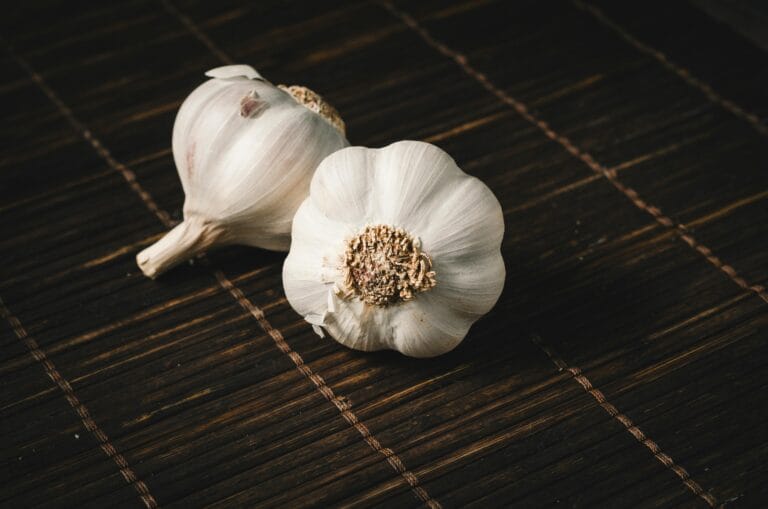The Calming Effects of Chamomile for Sleep
Chamomile has long been recognized for its calming properties, making it a popular natural remedy for sleep disturbances. Numerous scientific studies have highlighted the effectiveness of chamomile tea in promoting relaxation, significantly reducing insomnia symptoms, and enhancing overall sleep quality. The primary active compound in chamomile, apigenin, binds to specific receptors in the brain, leading to sedative effects that can help in managing sleep disorders.
Incorporating chamomile into nightly routines can be straightforward and enjoyable. One of the most common methods is through chamomile tea. To brew chamomile tea, steep a chamomile tea bag or dried chamomile flowers in hot water for about 5 to 10 minutes. This not only creates a soothing beverage but also releases aromatic compounds that can foster relaxation. For optimal results, consider drinking chamomile tea 30 minutes to an hour before bedtime.
In addition to tea, chamomile essential oil is another effective way to utilize its sleep-inducing properties. A few drops of chamomile essential oil can be added to a diffuser or even applied topically when diluted with a carrier oil. The soothing scent can help establish a calming atmosphere, conducive to restfulness. However, it’s essential to adhere to proper dosages to avoid any adverse effects. Generally, consuming chamomile tea once or twice daily is considered safe for most individuals, although those who are pregnant or have certain health conditions should consult a healthcare professional prior to use.
In summary, the health benefits of chamomile in aiding sleep are supported by both traditional use and scientific research. By integrating chamomile tea or essential oil into evening routines, individuals can harness its calming effects, facilitating a more restful night’s sleep, thereby enhancing overall well-being.
Digestive Health Benefits of Chamomile
Chamomile, a well-known herbal remedy, has been praised for its numerous health benefits, particularly in promoting digestive wellness. The consumption of chamomile tea benefits the gastrointestinal system by alleviating common issues such as bloating, indigestion, and gas. Chamomile acts as a gentle relaxant for the muscles in the gastrointestinal tract, which can help ease the discomfort associated with digestive disorders.
The mechanism of action for chamomile can be attributed to its anti-inflammatory properties and its ability to stimulate the secretion of digestive juices. These characteristics enable chamomile to enhance digestion and facilitate the absorption of nutrients, which contributes to better overall health. Many people use chamomile for sleep and relaxation, but its calming effects extend to the digestive system as well. By reducing the complications associated with stress, chamomile indirectly supports healthy digestion.
Traditionally, chamomile has been employed in various cultures as a natural remedy for digestive ailments. Modern applications include drinking chamomile tea to soothe an upset stomach or as a daily beverage to promote general digestive health. For those looking to incorporate chamomile into their diet, several delicious recipes exist. Chamomile-infused dishes, such as chamomile and honey yogurt or chamomile apple compote, offer a gourmet touch while delivering the health benefits of chamomile.
Additionally, chamomile tinctures can be prepared to provide a concentrated source of its benefits. When using chamomile essential oil, it is essential to dilute it before consumption or topical application. Chamomile skincare benefits, such as its soothing effects on irritated skin, further emphasize its versatility as a natural remedy. To harness its digestive properties, individuals can enjoy a warm cup of chamomile tea after meals or include it in their nighttime routine to promote relaxation and aid digestion simultaneously.
Chamomile for Skincare: Nature’s Soothing Agent
Chamomile is widely recognized for its remarkable health benefits, particularly in the realm of skincare. This versatile herb, rich in anti-inflammatory properties, serves as a natural remedy for numerous skin conditions, including acne, eczema, and irritation. The presence of powerful antioxidants in chamomile works to neutralize free radicals, which can contribute to premature aging and skin damage. By integrating chamomile into skincare routines, individuals can promote a healthier complexion while reaping the benefits of its soothing qualities.
For those experiencing acne, chamomile tea can effectively reduce inflammation and redness. The anti-inflammatory properties of chamomile work to calm the skin, providing relief from the discomfort associated with breakouts. Chamomile can also be used in DIY skincare recipes, such as chamomile-infused face masks or toners, which leverage its healing properties. A simple mask can be created by steeping chamomile tea leaves, allowing the liquid to cool, and then applying it to the skin for a nourishing effect.
Moreover, chamomile is known for its effectiveness in treating eczema and other skin irritations. Its natural soothing capabilities help minimize itching, redness, and dry patches. Utilizing chamomile essential oil in diluted form can serve as an effective topical treatment, providing moisture and relief to inflamed skin. It is crucial, however, to select high-quality chamomile products or create homemade remedies that avoid unnecessary additives.
In conclusion, the health benefits of chamomile extend beyond simple beverages. Incorporating chamomile in skincare routines can enhance skin health through its anti-inflammatory and antioxidant properties. Whether through DIY applications or store-bought remedies, chamomile remains a powerful ally in the pursuit of achieving radiant and healthy skin.
Incorporating Chamomile into Your Daily Routine
Integrating chamomile into your daily routine can provide numerous health benefits, including improved relaxation, enhanced digestion, and even better skin care. One of the most popular and accessible forms of chamomile is chamomile tea. Consider brewing a warm cup in the evening to promote relaxation and prepare for restful sleep. For optimal results, steep the chamomile tea for about 5 minutes, allowing the natural compounds to infuse fully into the water. Enthusiasts often find that incorporating this soothing beverage into their bedtime routine significantly reduces stress and anxiety.
In addition to tea, chamomile is also available in capsules and extracts, which can be a convenient option for those who prefer a more straightforward approach. These supplements can help harness the chamomile benefits while providing a consistent dose of the herb’s therapeutic properties. Chamomile essential oil is another valuable form, noted for its versatility in skincare and aromatherapy. Utilizing a few drops in a diffuser can create a calming environment, enhancing relaxation throughout your day.
While chamomile is generally safe for most individuals, it is crucial to be aware of potential side effects. Some people may experience allergic reactions, particularly if they have sensitivities to plants within the daisy family. Pregnant or nursing women and those on certain medications should consult with healthcare professionals before incorporating chamomile as a remedy to avoid adverse interactions.
Moreover, combining chamomile with other lifestyle changes can maximize its health benefits. Engaging in regular exercise, practicing mindfulness, and maintaining a balanced diet rich in fruits and vegetables can further enhance chamomile’s positive effects on overall well-being. By thoughtfully incorporating chamomile into your daily routine, you can harness its myriad health benefits while promoting relaxation and reducing stress.








